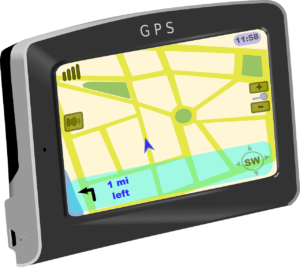 In the rapidly evolving landscape of fleet management, staying ahead requires adopting innovative solutions that optimize operations, ensure safety, and improve efficiency. Among the plethora of tools, GPS Vehicle Trackers stand out as indispensable assets for e-fleet care.
In the rapidly evolving landscape of fleet management, staying ahead requires adopting innovative solutions that optimize operations, ensure safety, and improve efficiency. Among the plethora of tools, GPS Vehicle Trackers stand out as indispensable assets for e-fleet care.
These small yet powerful GPS Vehicle Trackers offer a wealth of benefits, from real-time monitoring to data-driven insights, empowering fleet managers to make informed decisions and streamline their operations.
GPS vehicle trackers leverage Global Positioning System (GPS) technology to accurately determine the location of vehicles in real-time. These compact devices are installed in vehicles and communicate with satellites to provide precise location data.
Advanced GPS Vehicle Trackers offer additional features such as geofencing, route optimization, driver behavior, and remote diagnostics, enabling comprehensive fleet management solutions.
With GPS Vehicle Trackers, fleet managers gain unparalleled visibility into their operations. We can track the precise location of each vehicle, monitor routes in real time, and identify any deviations from planned schedules.
This level of monitoring allows for prompt intervention in case of emergencies, route deviations, or unauthorized vehicle usage, enhancing overall safety and security.
Efficient route planning is crucial for e-fleet care operations. GPS Vehicle Trackers provide valuable insights into vehicle usage patterns, traffic conditions, and driver behavior, allowing fleet managers to optimize routes and schedules for maximum efficiency.
By minimizing idle time, reducing fuel consumption, and optimizing delivery routes, businesses can significantly enhance their productivity and profitability.
Safety is paramount in fleet management, especially for e-fleet care services transporting sensitive cargo or operating in hazardous conditions. GPS vehicle trackers help enforce safe driving practices by monitoring speed, harsh braking, and other risky behaviors.
In addition, they facilitate compliance with regulatory requirements by providing accurate records of driving hours, vehicle inspections, and maintenance schedules.
Regular maintenance is essential for keeping e-fleet vehicles in optimal condition and preventing costly breakdowns. GPS vehicle trackers offer remote diagnostics capabilities, allowing fleet managers to monitor vehicle health in real time.
By receiving alerts for maintenance tasks based on vehicle usage and performance data, businesses can proactively address issues before they escalate, minimizing downtime and repair costs.
Vehicle theft poses a significant risk to e-fleet care businesses, jeopardizing both assets and operations. GPS Vehicle Trackers serve as powerful deterrents against theft, enabling real-time tracking of stolen vehicles and facilitating swift recovery efforts.
With features such as geofencing and tamper alerts, businesses can protect their assets and maintain continuity of operations, even in the face of unforeseen challenges.
GPS Vehicle Trackers provide valuable data on vehicle usage and performance, enabling fleet managers to optimize their fleet size and allocation of resources. By analyzing historical data on routes, usage patterns, and vehicle efficiency, businesses can make informed decisions about fleet expansion or downsizing.
This optimization not only reduces operational costs but also ensures that the right vehicles are deployed for specific tasks, enhancing overall operational efficiency.
Real-time tracking capabilities offered by GPS Vehicle Trackers empower e-fleet care businesses to provide superior customer service. Ultimately, improved service levels contribute to higher customer satisfaction and loyalty, driving business growth.
Customers can receive accurate updates on the status and ETA of their deliveries or service appointments, enhancing transparency and reliability. In case of delays or unforeseen circumstances, proactive communication enabled by GPS tracking helps manage customer expectations and mitigate dissatisfaction.
Efforts to reduce carbon footprint and promote environmental sustainability are increasingly important in the transportation industry. GPS Vehicle Trackers play a crucial role in supporting these initiatives by enabling eco-friendly driving behaviors and route optimization.
Fleet managers can monitor fuel consumption, emissions, and vehicle efficiency metrics to identify areas for improvement and implement eco-driving strategies. By reducing fuel consumption and emissions, e-fleet care businesses can contribute to environmental conservation efforts while also realizing cost savings in the long run.
Selecting the appropriate GPS Vehicle Tracker is crucial for maximizing the benefits of e-fleet care management. Considerations such as accuracy, reliability, battery life, and scalability should guide the decision-making process.
It’s essential to choose a solution that aligns with the specific needs and goals of your business, whether it’s a small e-fleet operation or a large-scale logistics enterprise.
In an increasingly competitive market, e-fleet care businesses must leverage every available advantage to stay ahead. GPS vehicle trackers offer a comprehensive solution for optimizing operations, enhancing safety, and improving efficiency.
By harnessing the power of real-time monitoring, data-driven insights, and proactive maintenance, businesses can unlock new opportunities for growth and success in the dynamic world of fleet management. Embracing GPS technology is not just a choice; it’s a strategic imperative for e-fleet care businesses aiming to thrive in the digital age.